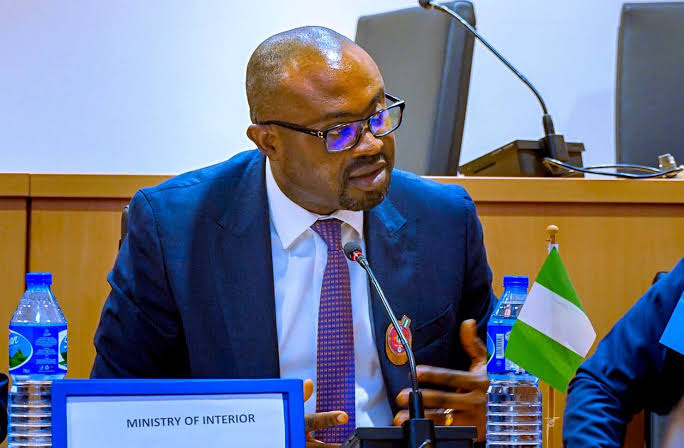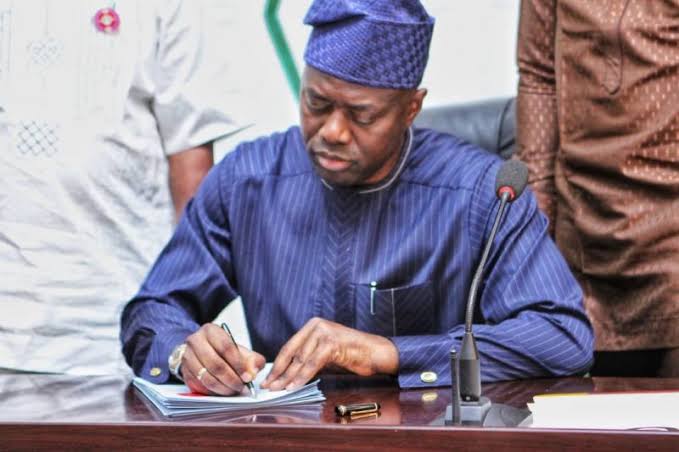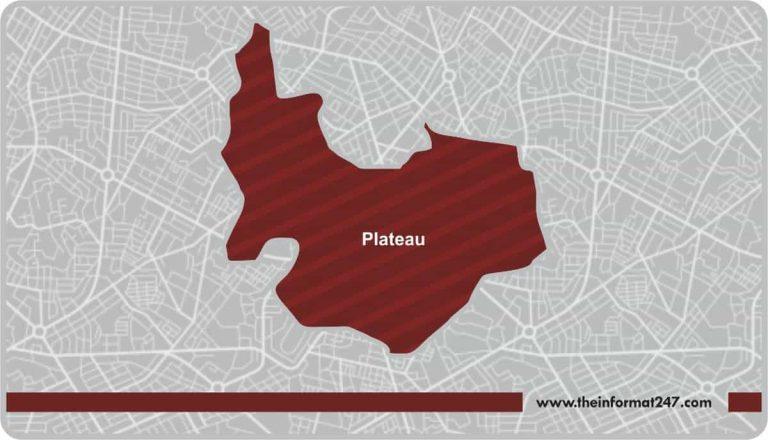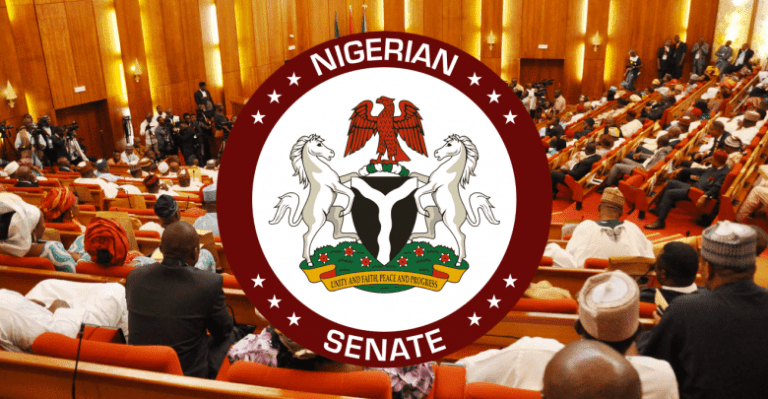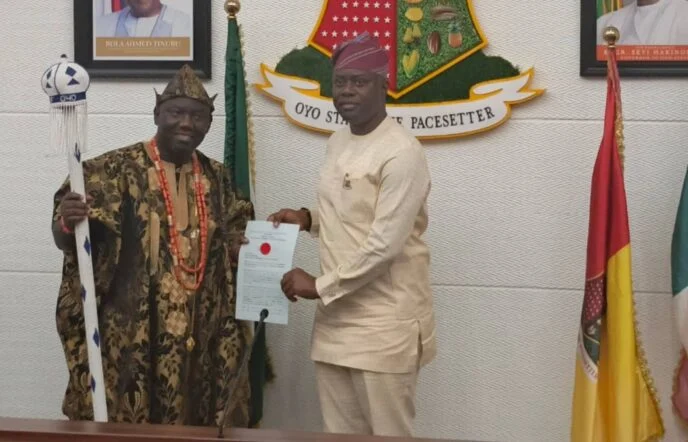Lakurawa: FG committed to ending insecurity, says Interior Minister Tunji-Ojo
The minister of interior, Olubunmi Tunji-Ojo, has said that the federal government is working tirelessly to address the insecurity in the country.
Tunji-Ojo, while reacting to the new emergence of a terror group, Lakurawa, terrorising both Sokoto and Kebbi state on Politics Today, a Channels Television programme on Tuesday, said Nuhu Ribadu, the national security adviser (NSA), is deeply concerned and losing sleep over the insecurity challenges.
The Informant247 reports that the new armed group, Lakurawa, has killed no fewer than 15 people, while over 100 cows were rustled in Mera, Augie Local Government Area of Kebbi State.
Meanwhile, the defence headquarters (DHQ), through the director of defence media operations, Edward, had recently declared nine leaders of the terrorist group wanted after infiltrating northern Sokoto and Kebbi from neighbouring Niger Republic and Mali.
Buba said the recent coup in the Niger Republic disrupted military cooperation between the country and Nigeria.
Tunji-Ojo said all concerned security agencies and heads are working around the clock to address the country’s insecurity challenges.
“Nobody is resting. Not the NSA, Mallam Nuhu Ribadu, not the minister of defence, not the chief of defence Staff, not the DSS,” the minister said.
“Nobody is sleeping; we are working. This security issue is a major issue of national concern, and I will not sit here and refuse to take responsibility for the security of Nigerians on behalf of the president.
“I will tell you that the national security adviser is working round the clock with us, the defence, and, of course, the armed forces. And I want to assure Nigerians that we are on top of the security situation.
“The fact remains that as much as we are talking about results and effects, we must also not forget that the question is, how did we get here?
“I can tell you that under President Bola Tinubu, there’s a determination to solve this issue. But we must make sure that as much as we are solving these issues, we do not give room for other issues like this in the future.
“Security is a growing concern. When you decimate one group, other issues can arise because you are dealing with an ideological battle.
“I tell you, we are doing a lot. We have been able to handle our core conventional borders, and these are porous borders where we have the marching order of the president, and we are already working on that.
“It is not easy to solve problems that have persisted for over a century in just one year, but at least we can be on the right track.”
“The president is sensitive to these issues. Do not judge the president or this administration by the level of assurance. Talk is cheap; the real deal is the action,” he added.
“We came May 29 last year; I don’t want us to bring politics into this. We all know the situations across the board; have we gotten to where we want to get to?
“The answer is no. Are we where we were? The answer is no. We have made progress.”
Back story
The Informant247 had confirmed that a new terrorist group, Lukarawas, operating in the northwestern states of Sokoto and Kebbi, has emerged.
Major General Edward Buba, Director of Defence Media Operations, while confirming this development, said this group crossed into Nigeria from Niger following the recent military coup that disrupted joint border security efforts, aggravating regional security concerns in the country.
According to Maj Gen. Edward, the group reportedly gained local acceptance initially, but security forces have since intensified Intelligence, Surveillance, and Reconnaissance (ISR) efforts to neutralize their activities. Meanwhile, the military has also listed nine Northeast terrorist commanders as wanted, emphasising ongoing counter-terrorism measures.
With terrorist groups capitalising on sparsely governed territories, Nigerian forces have continued their mission to dismantle the Lukarawas network and restore stability in affected areas.
Meanwhile, at least 15 people have been reportedly murdered by the new armed group, Lakurawa, while over 100 cows were rustled in Mera, Augie Local Government Area of Kebbi State.
According to a prominent personality in the town, Alhaji Bashir Isah Mera (Yariman Mera), who confirmed the attack to Daily Trust, the group invaded the town as people were getting set for Jumat prayer and made away with over 100 cattle.
“On hearing this, people of the town mobilised in their hundreds and pursued them to the bush to recover the cows.
“There was exchange of fire between the people of the town and the bandits, which led to the killing of 15 people, and two of the lakurawas were also killed,” he said.
Mera added that the Lukarawas are hiding in Sokoto bush from where they coordinate their attacks.
“Initially, they didn’t kill; they only confiscated cows and asked owners to pay ‘Zakat’. That has been happening for almost two months. This is their first attack in which they killed 15 people in our town,” he said.
Mera said Governor Nasir Idris had called him on the phone twice, expressing worry over the killings and ordering the deployment of soldiers to the community to contain the situation, adding that the commanding officer of Dukku barracks, DSS boss, Commissioner of Police, and combined security forces have been mobilised to restore normalcy to Mera town and its environs.
Also, the state’s Deputy Governor, Senator Abubakar Umar Tafida and Emir of Argungu, Alhaji Samaila Mera, have visited Mera town to sympathise with the families of the deceased while assuring the people that the governor had pledged to ensure their protection against further attacks by the terror group.
The emergence of Lakurawa, a new terror group
According to HumAngle, a new terror group, Lakurawa, has been in existence for over six years, operating in an immersive fashion in different areas of Sokoto state, including Tangaza, Gudu, and Binji. They played on the emotion of a people desperate for protection against roving terrorists. Just when the people thought they had found new saviours, the Lakurawa introduced their radical ideologies and activities, putting civilians in a more difficult situation. Now, they do worse than the existing rural criminals, killing unarmed villagers, attacking security agents, taxing farmers, herders and traders and imposing radical Islamist rules.
In a region already plagued by many terror groups, the foreign-linked Lakurawas appear to be more significant threats to ordinary people. Locals say they fear a resurgence of a group similar to the deadly Boko Haram. The Arewa Consultative Forum, a group of concerned citizens from Northern Nigeria, have shown concern about the group, asking authorities to uproot them lest they pose more threats to human existence in the region.
“Lakurawa, at this early stage of its emergence, must not be tolerated or allowed to entrench itself in our communities through benign neglect or kid-glove treatment, as was the case with Boko Haram insurgency, farmer-herder clashes, and banditry in the northeast, north-central, and northwest regions, respectively,” the group said in a statement.“This is the moment for our security agencies to act swiftly and decisively, using all available human and material resources without hesitation. We must leave no one in doubt about the national resolve to deal decisively with any threat to Nigeria’s peace and stability.”
The geography of the Lakurawa terrorists
According to HumanAngle, the Lakurawa criminal gang has been active in at least nine areas across three local governments —Tangaza, Gudu, and Silame — in Sokoto state, as well as in Marake and Illela localities near Zamfara. These towns are situated in the porous borders of Sokoto state, enabling armed groups to cross freely between Nigeria and Niger Republic. Once over the border, they establish camps in the region’s expansive bushland. Although the areas are within the Sudan savannah, they contain dense forests and ungoverned spaces that provide cover and concealment to the terrorists in the region. A similar situation occurred in Sambisa, a forest area connecting multiple communities in Borno state.
From a geographical perspective, however, these three local governments have always been vulnerable to transnational criminals, making it unsurprising that they are affected. Historically, similar ungovernable areas in this region have been targeted by terror groups. This is why the Lakurawa were initially enlisted to guard communities but have since adopted methods and goals similar to the enemies they once opposed.
In cross-border insurgencies, affected localities are typically positioned along indistinct frontiers across states. In this case, Gudu is only three kilometres from the national boundary, and Tangaza is eight kilometres away. Although Silame is over 50 kilometres from the border, its proximity to Tangaza and Gudu has led to spillover impacts. As the Lakurawa terrorists settle further into these areas, their presence has gradually extended into neighbouring Zamfara state.
This development signals a growing reach for the Lakurawa group, pushing the crisis into additional communities. An extensive satellite investigation by HumAngle shows that as many as 500 locations, including villages, farming hamlets, and isolated settlements close to these affected areas, may experience direct attacks from the group in the coming weeks, months, or even years — depending on the group’s growth trajectory.
The three affected local government areas in Nigeria are close to the Niger Republic, where an internal political crisis has led to the dysfunction of border patrols on both sides. Visualisation by Mansir Muhammad/HumAngle.
Map highlighting areas with pinned locations, labelled with names, adjacent to the Niger Republic and near Zamfara and Sokoto.
The towns and districts above communities have reported sightings, attacks and activities.
Map highlighting areas with pushpins labelled Tunigara, Mulawa, Wasanniya, Gudu, Tangaza, and Silame.
At least three locations in the bushes were reported to be their campgrounds in Tangaza — as seen above.
Close to the border, the terrorists move into Nigeria through the porous border areas. From there, they settle, understand the terrain and enter ungoverned forest areas where they camp to traverse local communities.
The communities dotted in red above fall within the range of the terrorists’ control and potential influence. About 500 of these villages are populated, while some are isolated rural communities; being domiciled in the environs also means they can plan their actions to involve more high-profile areas.
However, our geospatial analysis reveals a dire security situation about the conflict in this region, with at least 33 attacks across 14 locations this year alone. Most of these violent incidents were perpetrated by unaffiliated armed groups or local militias. However, the recent emergence of Lakurawa, a named group, signals a potentially more organised and structured threat. This development hints at a shift towards a more sophisticated and coordinated extremist presence, which, if not checked, may grow to tow the lines of established groups like Boko Haram and Indigenous People of Biafra (IPOB).
Credit to HumanAngle for in-depth information about Lakurawa

